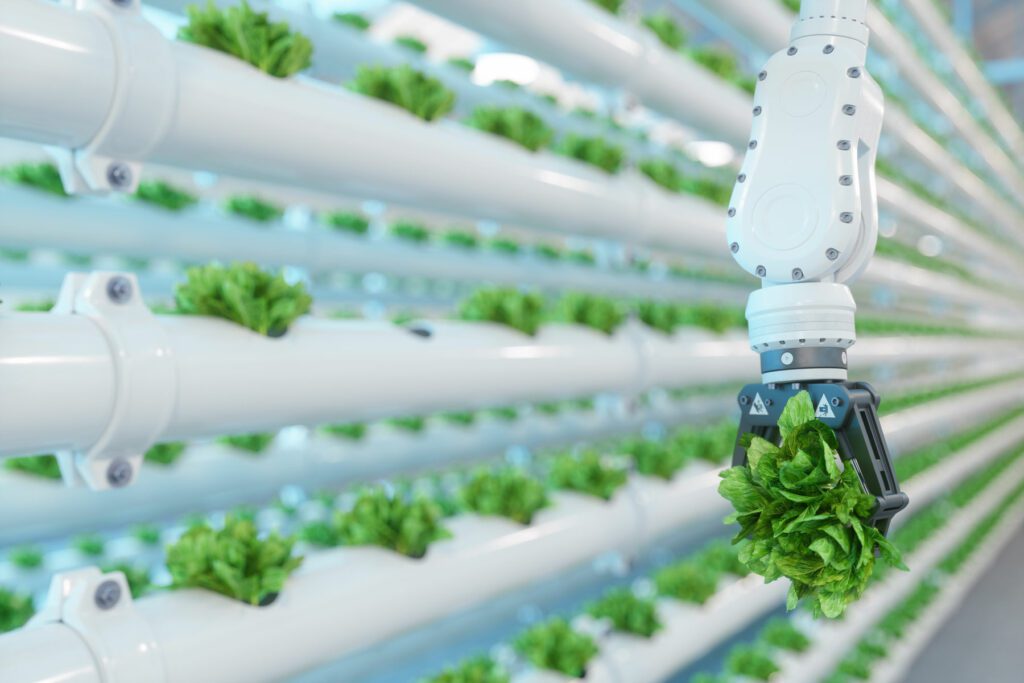Author
The future of farming in the UK is inextricably linked to the increasing integration of technology across all aspects of agricultural practices. Faced with challenges such as the shortage of workers, environmental regulations, climate change, and the need for increased efficiency and sustainability, UK farmers are increasingly turning to technological innovations to navigate these complexities and ensure the long-term viability of their operations.
Many of these practices are underpinned by data and protected by intellectual property rights and confidential information. Here, we set out a few of the practices being adopted.
Precision Agriculture
This approach utilises a suite of technologies to optimise resource use and improve crop yields.
Key components include GPSguided equipment, Variable Rate Technology (VRT) for the precise application of fertilisers and pesticides, soil and weather sensors, and data analytics platforms.
By collecting and analysing data on soil conditions, nutrient levels, moisture, and crop health, farmers can make data-driven decisions, applying the right inputs at the right time and in the right place. This minimises waste, reduces environmental impact, and maximises productivity.
Drones and satellite imagery provide valuable aerial perspectives for crop monitoring and field analysis, enabling early detection of issues like pest infestations or nutrient deficiencies.
Artificial Intelligence (AI) and Data Analytics
AI algorithms can analyse vast amounts of agricultural data, including weather patterns, soil data, crop yields, and market trends, to provide farmers with actionable insights. This can lead to improved decision-making in areas such as planting schedules, irrigation management, pest and disease control, and harvesting times.
Predictive analytics can forecast yields and potential risks, allowing farmers to proactively manage their operations. Machine learning can also be used to optimise machinery performance and predict maintenance needs, thereby reducing downtime.
Automation and Robotics
Automation, although some way off, is set to revolutionise farming tasks, reducing reliance on manual labour and improving precision. Autonomous tractors and other machinery, equipped with GPS and advanced sensors, can perform tasks like ploughing, planting, and harvesting with greater accuracy and efficiency, operating around the clock and in varying weather conditions.
Robotic systems are being developed for more delicate tasks such as fruit picking, weeding, and even livestock management, offering the potential for increased productivity and reduced waste. For instance, robotic milking systems are already streamlining dairy farming operations.
Internet of Things (IoT) and Sensor Technology
The deployment of interconnected sensors across farms will provide real-time data on a multitude of parameters, from soil moisture and temperature to livestock health and environmental conditions within controlled environments. This constant stream of information enables continuous monitoring and allows for immediate responses to changing conditions.
Smart irrigation systems, for example, can automatically adjust water application based on soil moisture levels, conserving water resources. Wearable sensors on livestock can monitor their health and behaviour, enabling early detection of illness or distress.
Controlled Environment Agriculture
Vertical farming and advanced greenhouses represent a significant technological shift, allowing for year-round production of crops in controlled environments. These systems utilise technologies like hydroponics, aeroponics, and precise climate control (temperature, humidity, lighting) to optimise growing conditions, minimise water usage, and eliminate the need for pesticides.
While currently focused on highvalue crops, advancements in this area could contribute to greater food security and reduce the reliance on traditional field-based agriculture, particularly in urban or land-limited areas.
Sustainable Technologies
Technology will play a crucial role in promoting more sustainable farming practices. Precision agriculture techniques inherently contribute to sustainability by reducing the use of chemicals and water.
Furthermore, technologies that support renewable energy generation on farms, such as solar panels and wind turbines, can reduce reliance on fossil fuels and lower carbon footprints. Innovations in waste management and nutrient recycling will also contribute to a more circular agricultural economy.
Conclusion
The future of UK farming will be characterised by a deeper and more sophisticated integration of technology. From autonomous machinery and precision agriculture to AI-powered analytics and controlled environment systems, these innovations hold the key to enhancing efficiency, improving sustainability, ensuring food security, and making UK agriculture more resilient to the challenges of the 21st century.
Farmers who embrace these technological advancements will be well positioned to thrive in an evolving agricultural landscape.
Print article

